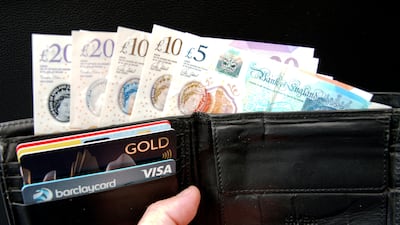The rate of inflation in the UK was 2.3 per cent in April, down from 3.2 per cent the month before, but still above the Bank of England's two per cent target, according to the Office for National Statistics (ONS).
The figure was above economists' expectations of 2.1 per cent, but is the lowest reading since July 2021.
“Today marks a major moment for the economy, with inflation back to normal,” Prime Minister Rishi Sunak said
“This is proof that the plan is working and that the difficult decisions we have taken are paying off.
“Brighter days are ahead, but only if we stick to the plan to improve economic security and opportunity for everyone.”
The opposition Labour Party's shadow chancellor, Rachel Reeves, said the fall in the rate of inflation was nothing to be complacent about.
“Inflation has fallen, but now is not the time for Conservative ministers to be popping champagne corks and taking a victory lap,” she said.
“After 14 years of Conservative chaos families are worse off. Prices in the shops have soared, mortgage bills have risen and taxes are at a 70-year high.
“Rishi Sunak is now putting family finances at risk again with his £46 billion unfunded policy to abolish national insurance that will mean higher borrowing, higher taxes or the end of the state pension as we know it.”

Energy price cap
The largest contributors to the downward pressure on inflation came from falling gas and electricity prices, following a 12 per cent reduction in the energy price cap set by the market regulator Ofgem.
Meanwhile, rising prices for motor fuels, which were falling a year ago, provided the biggest upward pressure.
Core inflation, which strips out energy, food, alcohol and tobacco, was at 3.9 per cent in April, down from 4.2 per cent in March, raising hopes that the Bank of England could cut interest rates as early as June.
“All eyes are now pinned on next month’s interest rate decision to see if the central bank will deliver more summer cheer with a rate cut,” said Alice Haine, personal finance analyst at Bestinvest by Evelyn Partners.
“While the possibility of a summer cut is being floated by members of the rate-setting Monetary Policy Committee, whether it happens in June or August remains to be seen.”
But Paul Dales, chief UK economist at Capital Economics, feels inflation remains “sticky” in many areas, which “makes a June rate cut unlikely and casts some doubt over August too”.
“Most disappointing was that services inflation only fell from 6 per cent to 5.9 per cent, which suggests the persistence in domestic inflation is fading even slower than the Bank of England had assumed.”

Service sector 'stickiness'
Within the service sector, inflation at restaurants and hotels was 6 per cent in April, up from 5.8 per cent the month before, while cultural services inflation, which covers concert and cinema ticket prices, rose from 5.4 per cent in March to 8.3 per cent in April. Economists believe this is largely down to companies passing on some of the costs associated with the rise in the minimum wage, which came into affect at the beginning of April.
“The stubbornness being seen in services pricing has been flagged by various Monetary Policy Committee (MPC) members as sufficient for them to demur from cutting interest rates yet and today’s reading will raise further doubts about both how soon and how fast the Bank of England will be able to lower rates,” said Stuart Cole, chief macro economist at Equiti Capital.
“Of further concern may also be how much of the saving on energy costs will simply spur households to boost spending in other areas, potentially proving a boost to inflationary pressures elsewhere.”


